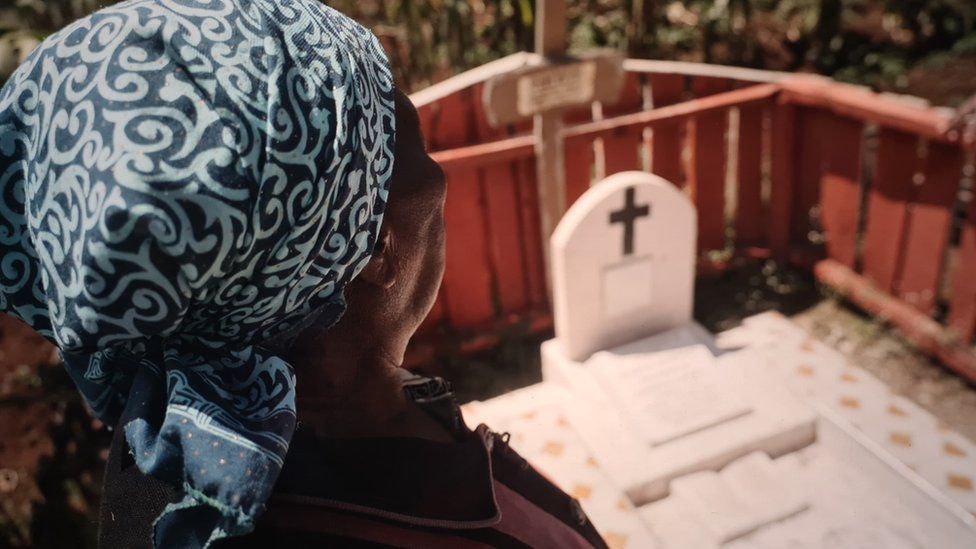-

-
-
Loading

Loading

During a state visit to Kenya, King Charles and his wife Camilla will address the UK's colonial past and acknowledge the "painful aspects" of it. The Mau Mau uprising in the 1950s was one of the bloodiest insurgencies of the British Empire, resulting in over 10,000 deaths and torture of many others. In 2013, Britain expressed regret and paid out £20m ($24m) in compensation to over 5,000 people affected by the uprising, but some believe it was insufficient. 90-year-old Agnes Muthoni, a former Mau Mau fighter, shows us the grave of her husband who also participated in the uprising. Ms. Muthoni was a major in the Kenya Land and Freedom Army known as the Mau Mau. She shares her wedding ring, explaining that she married her husband after he was released from detention, as he wanted to marry a woman who had experienced the same problems and wouldn't label him as a Mau Mau. Even after Kenya gained independence, former Mau Mau fighters like Ms. Muthoni continued to live in the shadows due to the group remaining outlawed. It wasn't until 2003 that the Mau Mau was recognized as freedom fighters. However, many post-independence generations knew little about the past. Paul Muite, a Kenyan lawyer and politician, believes a commission of inquiry should be set up by both the Kenyan and UK governments to document the colonial period in detail. Compensation has only been given to living fighters who were confirmed as torture victims, excluding others who provided services and fought against colonialism. Historian Caroline Elkins stresses the need for proper investigations, changes to history books and museums, and funding in Kenya to establish its own museums and cultural artifacts. She highlights that during the state of emergency in response to the Mau Mau revolt, Queen Elizabeth II was the reigning monarch, and the atrocities committed were done in her name. The Mau Mau attacks were brutal, with the colonial government carrying out a harsh crackdown and using air power and ground forces. It is estimated that as many as 320,000 people were held in detention or concentration camps, with prisoners suffering castration, floggings, and immolation. Over 1,000 individuals were executed during the emergency period. The conditions for Mau Mau fighters in the forest were dire, and the land that was once occupied by local communities was taken over by settler farmers, leaving them displaced. Despite the past, Ms. Muthoni expresses forgiveness and a desire to be given land.